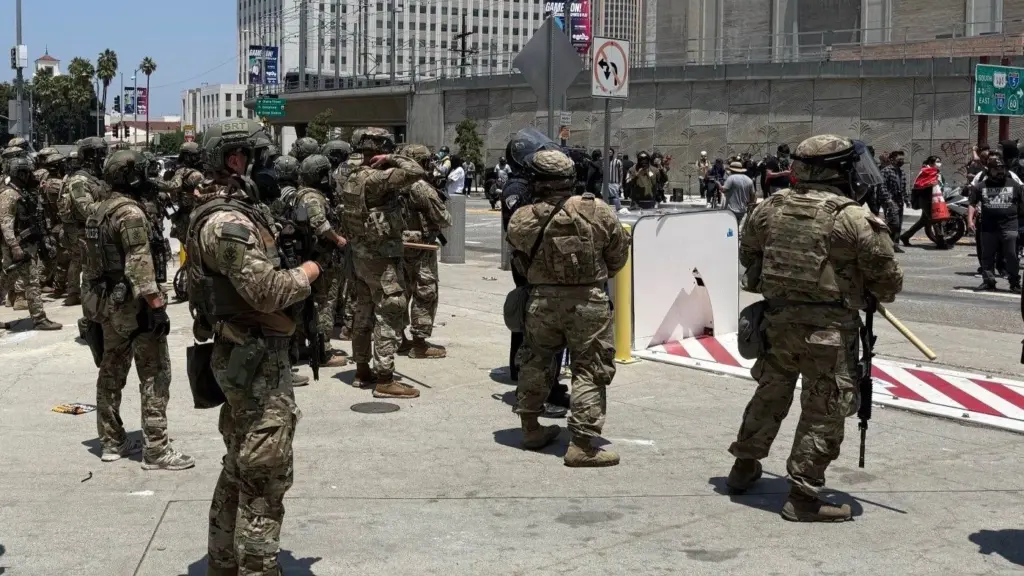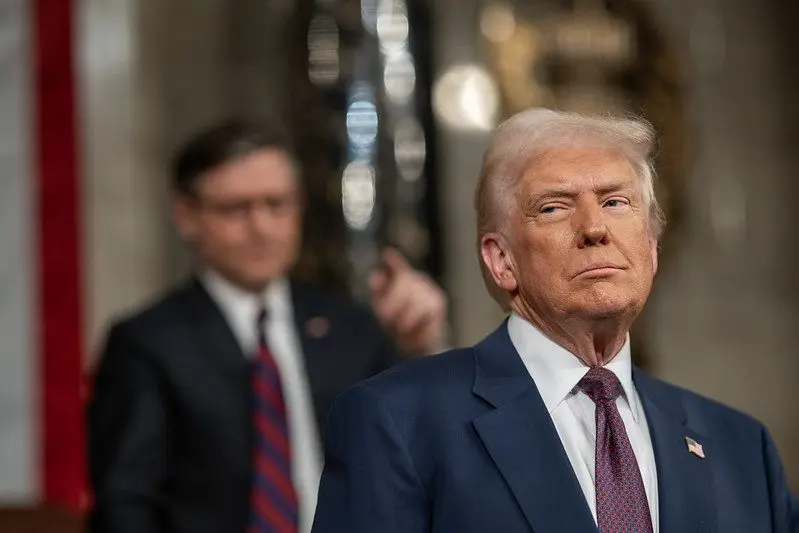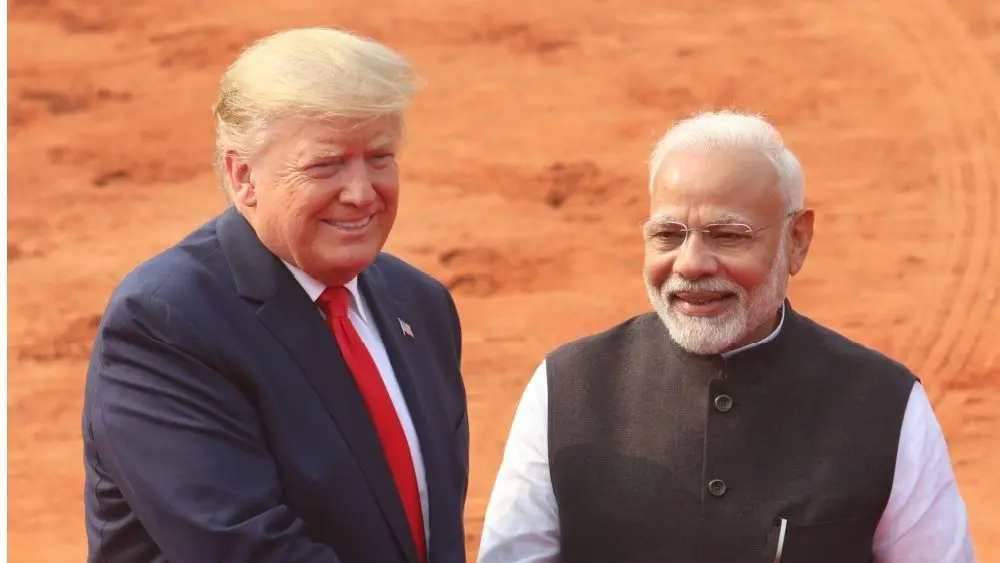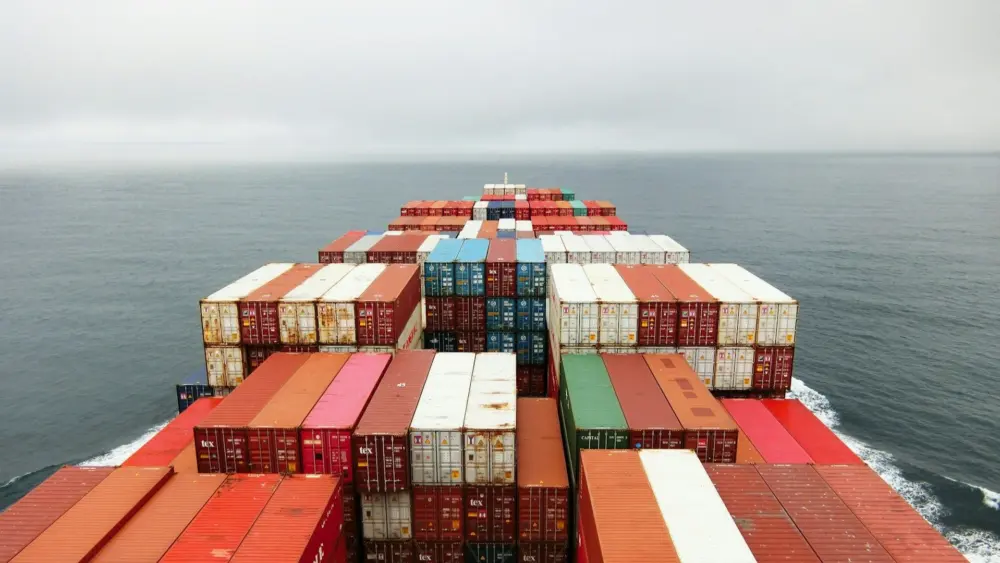LOS ANGELES, CA – A three-judge panel of a federal appeals court seemed poised Tuesday to allow President Donald Trump to command California National Guard troops during ongoing protests over immigration raids in Los Angeles.
The judges noted U.S. Supreme Court precedent gives the president wide discretion to determine when it is appropriate to federalize a state National Guard.
Sam Harbourt, an attorney for California’s state government, argued that the 9th Circuit U.S. Court of Appeals should keep in place a lower court’s order that Trump relinquish control of 4,000 state National Guard troops. Trump’s order calling up the troops over Gov. Gavin Newsom’s objections undermined state sovereignty and kept the Guard from its core mission, he said.
The legal requirements for a president to take command of a state National Guard had not been met, making the order invalid, Harbourt argued.
But the 9th Circuit panel, composed of Trump appointees Judges Mark Bennett and Eric Miller and Judge Jennifer Sung, whom Democratic President Joe Biden appointed, noted the 1827 Supreme Court case Martin v. Mott dealt with similar issues. It decided the president alone could decide whether the circumstances allowing a president to take control of a state National Guard — including whether a foreign invasion was happening — were met.
“If we were writing on a blank slate, I would tend to agree with you,” Sung, the Biden appointee, told Harbourt. “But the problem that I see for you is that Mott seemed to be dealing with very similar phrasing about whenever there is an invasion, then the president has discretion, and it seemingly rejected the exact argument that you’re making.”
Miller said the state might be making good arguments, but they would be better made to the Supreme Court, as the circuit court was bound to follow the high court’s precedent.
“We’re supposed to follow the applicable case and leave it to them to overrule it,” he said of the Supreme Court justices.
Harbourt responded that earlier Supreme Court cases did not deal with the law at issue in this case, Section 12406 of U.S. Code Title X, that allows the president to call up National Guard troops if there is danger of an invasion, rebellion or if he is unable to enforce the laws with “regular forces.”
President’s power ‘unreviewable’
The judges also questioned U.S. Justice Department attorney Brett Shumate about the potential limits to Trump’s authority to declare that the conditions for calling up a state National Guard are met.
Shumate said the president’s decision-making in that sphere was unreviewable.
“Is it your view that if the president or future president simply invokes the statute, gives no reasons for doing it, provides no support for doing it, and there is nothing which would appear to a court to justify it, that the court still has no role at all in determining whether the present president (or) this hypothetical future president, correctly invoked (the law)?” Bennett asked.
It was, Shumate responded, “because if the statute is unreviewable, it’s unreviewable.”
“The statute here confers unreviewable discretion for the president,” he said.
Harbourt called that view an “extraordinary argument.”
The federal government’s position amounts to saying “the president can federalize National Guard forces as soon as he makes a judgment that civilian federal law enforcement officials cannot do the job as they’ve been doing it in ideal circumstances or face any obstacles,” Harbourt said. “At minimum, (the law) requires the president to make a showing that he’s at least contemplated alternative, more modest measures before calling in the National Guard.”
Shumate said the deployment remained necessary because of unrest in Los Angeles. Over days of protests, federal law enforcement officers have been subject to “mob violence” that local authorities have been unable to stop, he said.
Democratic states side with Newsom
A coalition of 19 Democratic attorneys general and the governor of Kansas filed a friend-of-the-court brief on Sunday supporting California’s argument that Trump’s National Guard deployment deprived states of their right to use Guard troops for their own purposes.
More than 430,000 state National Guard troops nationwide help state governments respond to natural disasters and other incidents, assist police in intercepting drugs and provide election support, the Democratic states wrote.
“Allowing an unlawful federalization of the National Guard pulls service members away from responding to emergencies and performing vital services for which they are specially trained, and which Amici States cannot replace,” they wrote.
They also noted that Trump’s order mobilizing the California Guard was not limited to the Golden State or the Los Angeles
The attorneys general of Washington, Delaware, Arizona, Colorado, Connecticut, Hawai’i, Illinois, Maine, Maryland, Michigan, Minnesota, Nevada, New Jersey, New York, North Carolina, Oregon, Rhode Island, Vermont and Wisconsin filed the brief, along with Kansas Gov. Laura Kelly.
LA protests
Protests in the country’s second-largest city began June 6 after Immigration and Customs Enforcement officers raided workplaces. The raids were seen by protesters as an effort to detain migrants in the country illegally who had committed no other crimes.
Despite Newsom and Mayor Karen Bass’ objections, Trump called 4,000 National Guard troops and 700 U.S. Marines to the city to quell the protests and protect ICE officers. It was the first time in 60 years a president called a state’s National Guard over a governor’s objections and Newsom sued to stop it.
U.S. District Judge Charles Breyer ordered last week that Trump return command of the Guard to Newsom. The 9th Circuit panel paused that order before it went into effect, leaving Trump in command and the troops in Los Angeles.
A hearing in Breyer’s court is scheduled for Friday.
This story first appeared on Nevada Current.





